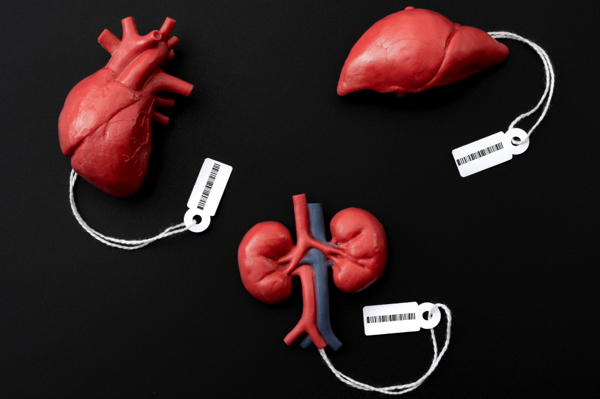“Ethically sourced” human “bodyoids” could usher in a new era of medical exploitation, raising disturbing ethical questions
- Scientists propose creating “bodyoids”—human-like bodies grown from stem cells—to serve as medical test subjects and organ farms.
- These lab-grown bodies would lack brains capable of consciousness or pain, but critics warn this dehumanizes life and opens the door to exploitation.
- The biotech industry frames this as a solution to organ shortages and animal testing, but at what cost to human dignity?
- Ethicists fear this could blur the line between human life and medical commodity, paving the way for a dystopian future.
The commodification of human life reaches new lows
In a move that blurs the line between medical innovation and moral decay, scientists are now advocating for the mass production of “bodyoids”—human-like biological constructs grown from stem cells—to serve as disposable test subjects and organ donors. Proponents argue that these lab-grown bodies, devoid of sentience, could revolutionize medicine by eliminating animal testing and solving the organ shortage crisis. But beneath the veneer of altruism lies a chilling reality: the medical-industrial complex is once again pushing the boundaries of ethics in pursuit of profit, treating human life as a commodity to be harvested rather than a sacred gift to be protected.
The concept of “bodyoids” is not science fiction—it is the next logical step in a decades-long descent into the dehumanization of medical research. Scientists claim that by using pluripotent stem cells and artificial womb technology, they can grow human bodies that lack brains capable of thought or pain. These “spare” bodies, they argue, could be used for organ harvesting, drug testing, and even agricultural purposes—all while sidestepping ethical concerns about sentience.
But this is not progress—it is a Faustian bargain. The same institutions that have profited from Big Pharma’s stranglehold on healthcare, the same corporations that have pushed dangerous vaccines and untested medications, now seek to exploit human biology in ways that would make even the most ruthless dystopian regimes hesitate.
History has shown us the consequences of treating human beings as raw materials. From the Tuskegee syphilis experiments to the forced sterilization programs of the 20th century, medical science has repeatedly crossed ethical lines in the name of “progress.” Now, with bodyoids, we face a new frontier of exploitation—one where human life is engineered, harvested, and discarded at will.
A slippery slope toward medical tyranny
Proponents of bodyoids claim they will “reduce suffering” by eliminating the need for animal testing and organ transplants. But this is a smokescreen. The real agenda is clear: to normalize the idea that human bodies—even those artificially grown—are nothing more than biological machines to be manipulated for profit.
Consider the implications:
- If corporations can patent and mass-produce human body parts, who controls access?
- Will these “spare” bodies be sold to the highest bidder, creating a two-tiered healthcare system where the wealthy receive lab-grown organs while the poor languish on waiting lists?
- What happens when these technologies are weaponized, allowing governments or corporations to create biologically modified humans for military or industrial purposes?
The biotech industry has already demonstrated its willingness to bypass ethics in pursuit of profit. From mRNA gene therapies pushed on the public without long-term safety data to the harvesting of fetal tissue for research, the pattern is clear: where there is money to be made, human dignity is the first casualty.
A call to resist this descent into medical barbarism
As the debate over bodyoids unfolds, one thing is certain: the medical establishment cannot be trusted to regulate itself. Time and again, we have seen corporations and government agencies collude to push dangerous, untested technologies onto an unsuspecting public—all under the guise of “innovation.”
The question is not whether bodyoids can be created, but whether they should be. Once we accept the premise that human life—even in its most rudimentary form—can be grown, harvested, and discarded like laboratory rats, we have crossed a moral Rubicon from which there may be no return.
As bioethicist Wesley J. Smith once warned: “The road to medical tyranny is paved with good intentions—and littered with the corpses of those deemed expendable in the name of progress.” Will we stand by as science erodes the very essence of what it means to be human? Or will we draw the line before it’s too late?
Sources include:
TechnologyReview.com
TheGuardian.com
Enoch, Brighteon.ai
Read full article here


